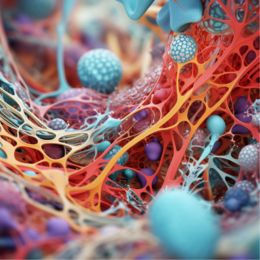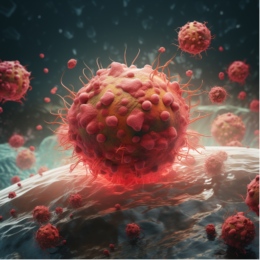What Do You Do When a Cancer Patient Won’t Eat? (4 Solutions)

When a loved one with cancer loses their appetite, it can be a distressing and bewildering experience. Eating provides our bodies with essential nutrients for healing, energy, and strength. But for cancer patients, several factors can hinder their appetite. So, what should you do when a cancer patient doesn’t eat? This article sheds light on this delicate issue.
Why Do Cancer Patients Lose Their Appetite?
Several things can make a cancer patient not feel like eating:
- Tumor Growth: As the tumor grows, it may exert pressure on the stomach or intestines, leading to discomfort or pain during eating.
- Treatment Side Effects: Chemotherapy, radiation, and other treatments can lead to nausea, alterations in taste, and mouth sores, which may deter a patient from eating.
- Emotional Factors: Stress, anxiety, and depression associated with the diagnosis can have a significant impact on a patient’s desire to eat.
Statistics:
- Nearly 40% of cancer patients experience significant weight loss at diagnosis.
- Over 80% of advanced cancer patients suffer from cachexia, a complex metabolic syndrome associated with reduced food intake.
What Happens When a Cancer Patient Won’t Eat?
If a cancer patient stops eating, the body searches for other energy sources. It starts to use stored fat and muscle. This means the patient might lose muscle strength. They could also heal slower after treatments because their immune system isn’t as strong.
Is It Normal for a Cancer Patient to Not Want to Eat?
Yes, it’s not uncommon. Many cancer patients feel this way, especially if they’re stressed or undergoing treatments. But, if the lack of appetite is persistent, it’s always recommended to contact the healthcare provider.
Why Do End-Stage Cancer Patients Stop Eating?
When cancer is very advanced, the body starts to work differently. It might not use food in the same way. Plus, the body’s natural processes might reduce hunger. Some patients also find it hard to swallow at this stage.
Statistics:
- About 50% of end-stage cancer patients experience difficulty in swallowing.
- Over 60% of patients in terminal stages reduce their food intake substantially.

What Do You Do When a Cancer Patient Won’t Eat?
Here’s what you can do when a cancer patient is unwilling or unable to eat:
1. Open a Dialogue:
It’s essential first to understand the patient’s perspective. Engage in a gentle conversation to discern their specific concerns, fears, or reasons for not eating. This can give insights into whether the problem is physical, emotional, or both.
2. Modify Diet:
Altering the diet can sometimes help. Soft foods, bland options, or liquid meals might be more palatable and easier to swallow. Ensuring that these meals are also nutritionally dense can help provide the body with the necessary nutrients without the volume of regular meals.
3. Introduce Small, Frequent Meals:
Instead of three substantial meals, consider introducing smaller, more frequent meals throughout the day. This can be less intimidating and allows the patient to consume food in manageable portions, possibly leading to a higher overall intake.
4. Seek Nutritional Counseling:
A professional nutritionist or dietician experienced in oncology can provide tailored advice on meal plans, supplements, and strategies to boost appetite or address specific nutritional deficiencies.
What Is the Best Appetite Stimulant for Cancer Patients?
Doctors might prescribe medicines to help stimulate appetite. Additionally, natural remedies, including herbs like ginger or peppermint, might help some patients. However, it’s always crucial to consult with a physician before starting any new medication or remedy.
Conclusion
A decline in appetite is a common challenge faced by many cancer patients. Understanding the underlying reasons and adopting a compassionate and informed approach can help ensure the patient remains nourished. Always maintain an open dialogue with healthcare providers and lean on professional advice when in doubt.
References:
- Bray, F. et al. (2018). Global cancer statistics 2018: CA: a cancer journal for clinicians, 68(6), 394-424.
- Cancer.Net. (2019). Loss of Appetite.
- Fearon, K., Anker, S. D, Strasser, F., & Bosaeus, I. (2011). Definition and classification of cancer cachexia: an international consensus.



